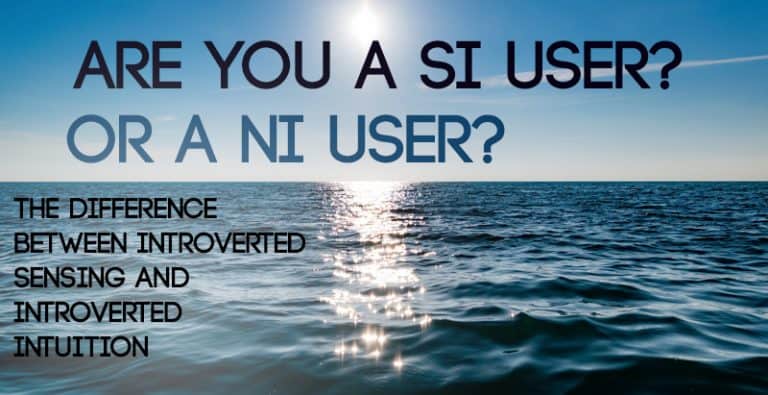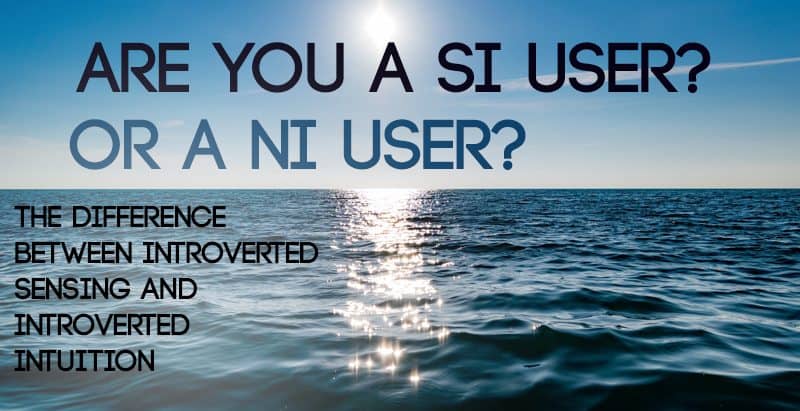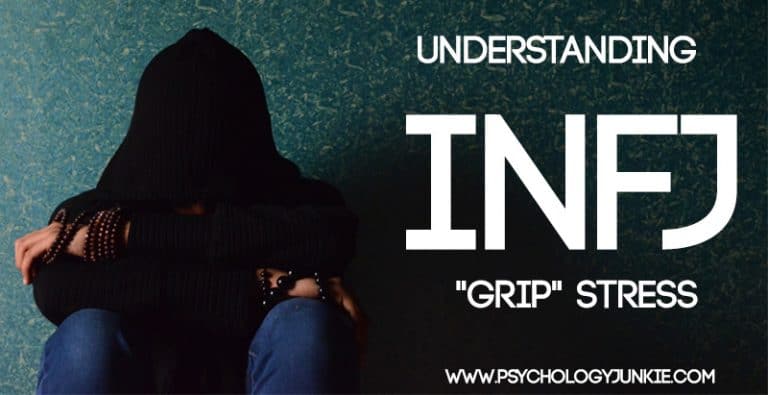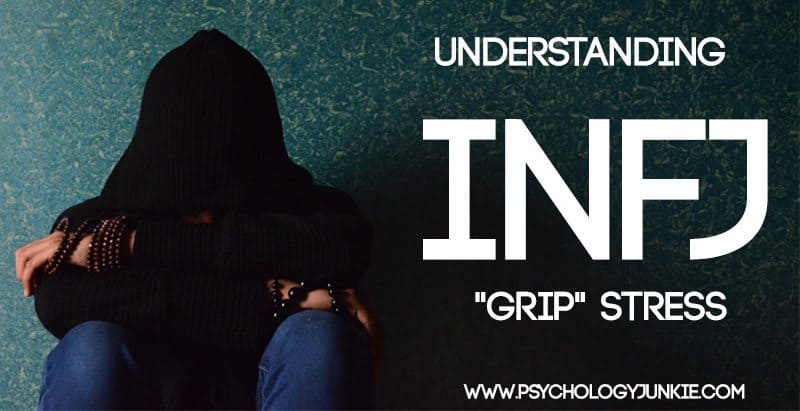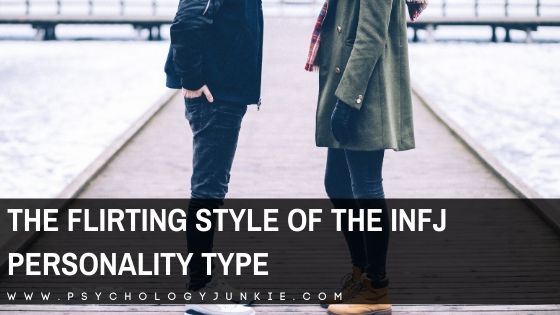The ISTJ Shadow Functions: An In-Depth Guide
Have you ever heard the term “shadow functions” and wondered what they meant? Maybe you’ve studied your personality type for a while, but still feel like there’s more you want to understand. If you’re an ISTJ and you’re trying to get really deep into understanding your type, beyond what most people know, you’re in the right place. Today we’re going past the ordinary type descriptions and into the lesser-known shadow of your personality type. Brace yourself. It can be interesting, it can be humbling, or it could be inspiring depending on how you process all this.
But first off…

Table of contents
Estimated reading time: 18 minutes
What Are the Shadow Functions?
As an ISTJ, you have a set of cognitive functions that help inform your worldview, decisions, and perceptions. The top four functions—your primary functions—are the ones you value and use most consciously. You don’t have to think that hard about using Introverted Sensing, for example; it’s as natural as breathing most of the time. It’s easy for you to compare and contrast, recall past wisdom, or rehash experiences in detail. But what about Introverted Intuition? Or Extraverted Feeling? Ooof…those are a whole different experience.
If you want to find out more about your primary cognitive functions you can do that here. Today we’re treading deeper waters.
For ISTJs, the primary functions are:
1. Dominant: Introverted Sensing (Si)
2. Auxiliary: Extraverted Thinking (Te)
3. Tertiary: Introverted Feeling (Fi)
4. Inferior: Extraverted Intuition (Ne)
Your shadow functions are less conscious than your primary functions. They’re the unclear, foggy, confusing parts of ourselves that we tend to be a bit blind to. Often they show up when we’re feeling ashamed, vulnerable, defensive, or oppositional. When our normal tools fail us, the shadow fights for authority. It plays dirty, can result in embarrassing situations, but it can also help us to grow, be more self-aware, and more humble. Before we become aware of the shadow, we tend to repress any consciousness of it. When it rears its head, we tend to avoid consciously focusing on it. We’re left thinking, “What did I just do?” and hurriedly distracting ourselves with other, more comfortable thoughts.
“When the tools available to our ego are not sufficient to defend us from assaults upon our personal integrity, the shadow usually steps in, unconsciously, with its alternative ways of operating, unfettered by moral constraints.”
– Mark Hunziker, Depth Typology
The shadow is also the source of many of our projections. When we don’t accept a part of ourselves, we often project that part onto other people. Have you ever known someone who despised people who acted a certain way, but also acted that way at times? That could be shadow projection. It’s very common and we all tend to do it from time to time. In fact, John Beebe famously said, “The shadow is the part of us that others see, but we don’t.” In many ways, it’s the source of a lot of the painful or embarrassing things we do that we aren’t aware of, but other people probably notice.
For ISTJs, the shadow functions are:
- Opposing Role: Extraverted Sensing (Se)
- Critical Parent: Introverted Thinking (Ti)
- Trickster: Extraverted Feeling (Fe)
- Demon: Introverted Intuition (Ni)
A Little Background:

The 8-function type model comes from the work of psychologist Dr. John Beebe and Mark Hunziker. Dr. John Beebe, M.D. is a Jungian analyst, editor of the San Francisco Jung Library Journal, co-editor of the Journal of Analytical Psychology, and author of Energies and Patterns in Psychological Type: The Reservoir of Consciousness. Beebe worked hard to understand how our non-preferred functions showed up in our lives. He felt that there had to be more to an individual than just the four primary functions we tend to talk about. As a psychologist, he noticed patterns in his client’s behaviors that matched up with specific Jungian archetypes. While Isabel Briggs Myers focused primarily on the dichotomies (I/E, S/N, T/F, J/P), she didn’t really focus on the less-preferred cognitive functions of each personality type. Beebe was certain that Jung had more to say about the unconscious and spent many years studying how these functions played out in himself and the people around him.
Opposing Role: Extraverted Sensing (Se)

Your dominant function, Introverted Sensing (Si), helps you stay grounded in past experiences and focus on what’s known and reliable. This is the function you like, the one that feels as easy as breathing. If someone asked you to reflect on the history of a situation, the details, or your past experience, that would be easy for you. Recalling age-old wisdom is a process you enjoy.
Extraverted Sensing (Se), however, is all about reacting to the present moment—focusing on immediate details, sensory information, and what’s happening right now. It’s impulsive, spontaneous, and quick. It doesn’t care about the past, it cares about now. When Se shows up as your opposing role, it can feel destabilizing and frustrating. You might want to quiet the voice of this function, seeing it as annoying and immature. Yet somehow it still breaks through on certain occasions.
Extraverted Sensing Asks:
- What’s happening now?
- What opportunities are there immediately?
- How can I amp up the sensory experience around me?
- What are the facts, without any personal bias?
- What can I physically do right now?
- Am I having fun?
Different Ways Oppositional Se Can Show Up:
When you’re feeling overwhelmed or vulnerable, Se might take over in ways that feel impulsive or reactive. You might suddenly find yourself hyper-focused on the chaos around you, feeling overwhelmed by sensory overload, or reacting to the situation without your usual careful planning. It can feel like you’re being pulled into the present in a way that’s uncomfortable or unnatural for you.
Let’s imagine that someone is pushing you to “break out of your shell” and be more spontaneous. Maybe they’re pushing you to dance, change your plans, go on an impromptu adventure. You start to feel vulnerable, anxious, and defensive of your ego. After all, you don’t want anyone to think you’re a stick in the mud or boring. It feels like the walls are caving in on you. You may feel tempted to lash out at them, trying to force your feelings onto them. Because you feel anxious and at risk of shame, you might try to make the other person feel ashamed. You might say “Oh! Is this your idea of fun? You want to blow all our money and be irresponsible? Sure! We don’t need a savings account or retirement savings! Let’s just have FUN!”
Whenever our opposing role comes out there tends to be this oppositional or passive-aggressive tone to it. It’s as if you’re saying to everyone, “Ha! You want me to be spontaneous? Look! Can you react to THIS?!” and you put them into some really unexpected situation that you know they’ll despise.
The Opposing Role and Projections

You may feel irritated by people who seem to embrace spontaneity or change without hesitation. Se-dominant types (like ESFPs or ESTPs) might appear reckless to you, and you may see them as childish, passive-aggressive, or unwilling to “grow up.” When they suggest you do something spontaneous you might feel like they’re mocking you or belittling you, when really they have no ill-intent. But the truth is, healthy Extraverted Sensing is important; it keeps us present, focused, observant, responsive, and immersed in the opportunities available now. However, as an ISTJ, you tend to use Extraverted Sensing in a way that is more childish. Your Introverted Sensing (Si) is the hero function, but your Extraverted Sensing (Se) is like the snarky younger brother to your Si. Therefore, you tend to project that “snark” onto people who are using Extraverted Sensing, even if they have no malice.
The Positive Side:
Once you recognize Se’s influence, you can start to see its benefits. Extraverted Sensing can help you be more adaptable and quick on your feet. When you’re willing to embrace the moment, Se can allow you to handle surprises with more grace, giving you an edge in fast-paced situations where immediate action is needed. It can also help you stay aware of what’s happening around you, helping you adjust plans rather than get angry because the plan didn’t work.
Managing Projections:
It’s crucial not to assume that people who use Se are “immature,” “reckless,” “silly,” or “irresponsible.” Be conscious that this may be a form of projection. Becoming cognizant of this tendency to project negative attributes to Se can help you to pause and take a moment for awareness. We tend to see our shadow as inherently negative or flawed. So when we meet people who have a different function stack (one that uses functions that are in our shadow) we tend to be skeptical and suspicious.
I’ve known many SJ parents who had conflict-ridden relationships with their SP children because of these projections. They wondered when their kids would ever “grow up,” and chastized them for their different approach to tasks. There was a lot of condescension in these families, and no matter what the Sensing-Perceiving children did, no matter how mature they became as adults, they were always treated as “less than.” Since the Sensing-Judging parents saw Se as inherently oppositional, manipulative, belligerent, or combative, they were constantly misunderstanding their children, seeing them as “problem children” no matter how old they got.
When you feel yourself becoming irritable, passive-aggressive, or dismissive of people with Sensing-Perceiving tendencies, stop and ask yourself, “Could my shadow be warping my perceptions of them?” Ask yourself whether what they are doing is actually wrong, or whether you’re making assumptions about them because the way they’re doing it bothers you.
Critical Parent: Introverted Thinking (Ti)

Your auxiliary function, Extraverted Thinking (Te), focuses on organizing the world around you and making it run as smoothly and efficiently as possible. This function supports your dominant function. When you have to interact with the outside world, you tend to employ Te. You know it’s got your back. It’s going to help you make things efficient, streamlined, and organized. It helps you to feel in control, balanced, and ready for challenges. There’s a flexible, quick nature to Extraverted Thinking that balances out the more cautious, detailed approach of Introverted Sensing.
Introverted Thinking (Ti), in contrast, is focused on internal logic, accuracy, and fine-tuning mental frameworks. It wonders, “How does this work?” or “Is this actually as accurate as it should be?”
Let’s use an example to make it easier to understand. Imagine you give an ISTJ an iPhone. Their Te wants to figure out how to use the new iPhone to streamline tasks, organize their calendar, and set up automated alerts that keep them up to date with their responsibilities. Maybe they’ll even download a game or two while they’re at it (while their Te shakes it head at the lack of usefulness of the game).
Ti, in contrast, wants to take the new iPhone apart, understand the hardware, look into every piece of the technology, and figure out the framework. Only after that is done does it care about actually using the iPhone.
Since Ti is your Critical Parent function, it sometimes feels harsh, accusatory, nitpicky, and self-defeating. It’s the part of you that criticizes your logic, your plans, your aptitude, and competency. It can also be the part of you that criticizes others’ plans, ideas, and perspectives.
Different Ways Critical Parent Ti Can Show Up:
When you feel overwhelmed, ashamed, or vulnerable, Ti might manifest as a harsh internal critic. You might find yourself nitpicking every little detail, becoming overly focused on what’s logically wrong in a situation. Instead of relying on your usual practical approach, you might turn inward, questioning the underlying logic of your actions or criticizing yourself for not being “perfect” in your thinking. You might take all your plans and ideas apart, finding fault with every aspect of them, getting lost in the weeds of what’s “perfectly logical.”
You might think things like:
- “Don’t you see how this framework is constructed? How could you miss something so obvious!”
- “How could you miss this technical principle? What’s wrong with you?”
- “If you’d only looked at the logical construction of this plan, you’d have seen all these errors. But you were in too much of a hurry. You should just give up.”
Ti can also make you critical of others. You might find yourself becoming pedantic, nitpicking someone’s argument, looking for tiny logical flaws that you can use to make them feel inferior. This tends to only happen when you feel overwhelmed, vulnerable, or your ego feels threatened. For example, if you’re in a discussion with someone and you feel criticized in some form, you might start becoming nitpicky, tearing apart their perspective and getting stuck on one logical inconsistency that you find fault with.
Ti can also show up in projections. Because you tend to use Ti in a self-defeating, critical, withering way, you might assume people who value Introverted Thinking (Thinking-Perceiving personality types) are naturally critical, self-defeating, cold, and harsh. You might find yourself annoyed at them, feeling needlessly attacked, or irritated. You might think, “Why are they wasting time on theory when we need to get things done?” or “Why are they tearing apart my logic and attacking me?!” when they’re really just having a friendly argument or analyzing a topic without any malice involved at all.
You might find yourself saying (or thinking) things like:
- “Who cares about these principles! What’s the plan?!”
- “Why are they limiting me by getting stuck on models and frameworks I don’t care about?”
- “Mulling things over down to the fine-details like this will get us nowhere.”
- “Why do they despise me?”
- “Why can’t they stop criticizing me?”
How to Manage It:
Recognize when you’re being overly critical, either of yourself or others. Ti can help you fine-tune your decisions, but it’s important not to get stuck in “attack mode” where you’re just tearing down all your ideas and thoughts, or someone else’s. Ask yourself if the criticism is helping you move forward or if it’s just holding you back or defending your ego. Balance your logical scrutiny with action and trust in your practical knowledge.
When you’re with Thinking-Perceiving (TP) types, try to notice if you feel yourself feeling attacked, defensive, or threatened by them. Look for signs of annoyance and irritation within yourself, or the desire to dismiss them or pinpoint their errors even if it will have no practical benefit. This could all be your Critical Parent Ti causing you to project onto them without actually being aware of it. Once you become awakened to this tendency, you can start to see the value in Introverted Thinking and have better relationships with the people who wield it.
Trickster: Extraverted Feeling (Fe)

Extraverted Feeling (Fe) focuses on harmony, social connections, and understanding others’ emotions. As an ISTJ, this isn’t your strong suit. Instead, you value a process called Introverted Feeling (Fi). For you, it’s crucial to stay attuned to your inner values and what you feel is authentic and right to you. This might mean standing up for a cause that matters to you, calling someone out on their hypocrisy, or simply looking inward to process your feelings and their underlying meanings.
Fe, in contrast, is all about emotional dynamics and interplay. It seeks harmony, connection, a good “vibe” with someone else. Banter, flirtation, rapport; these all involve Extraverted Feeling. Many Extraverted Feeling types care about generating a harmonious mood and making sure everyone’s getting their needs met. The focus is on group dynamics, group needs, and expressed emotions from others. However, if the Extraverted Feeling type wants to create a negative mood, it knows full well how to do that also.
Ever get criticized because you were too “stoic”? This is a common ISTJ and INTJ problem. Why? Because they don’t really latch onto these Extraverted Feeling tendencies. Instead, they tend to see Extraverted Feeling as a bit manipulative, phony, and shallow. When Fe shows up in their trickster role, it can lead to awkward or manipulative social interactions.
How It Shows Up:
When you feel vulnerable, ashamed, or insecure, you might find yourself feeling disconnected from others emotionally, or even suspicious of people’s intentions. You could project this trickster energy onto others, assuming they’re being manipulative or insincere when they express emotions or try to connect with you on an emotional level.
In social situations, you might feel out of place or tempted to mock or dismiss emotional displays, thinking, “Why is everyone being so dramatic?” You might also use humor or sarcasm to avoid engaging with emotions or to deflect uncomfortable social expectations. For example, if someone is trying to get you to open up emotionally, you might respond with a joke or brush off the conversation.
The Trickster also has a cunning, manipulative side to it. In many ways it’s the “older brother” to your Introverted Feeling side. But it’s like an older brother who doesn’t care about the rules and isn’t afraid to be “bad.”
Here’s an example: Let’s say Tom, an ISTJ, feels like his partner doesn’t care about his deeper feelings and values (Fi). Overwhelmed and vulnerable, he reacts with trickster Extraverted Feeling (Fe). He criticizes his partner for “killing the mood,” not caring about his emotions, and guilt trips them into a situation where they feel like there’s nothing they can do to redeem themselves. It’s as if Tom’s Fe took the wheel from Fi, assuring Fi that “it’ll all be okay, I’ve got this” and went on to completely decimate the mood, manipulate the other person’s feelings, and put them in a catch-22 situation they can’t win. This is an example of Trickster Fe at work. And because it’s in the shadow, Tom doesn’t really want to accept what he just did. Instead, he moves on, assuring himself that he’s the wronged party in the situation (which he may or may not be to some degree, depending on the context).
How to Manage It:
First off, you have to recognize that Extraverted Feeling isn’t the enemy. When you find yourself around emotionally expressive people, don’t immediately dismiss what they’re saying, considering it “illogical” because it was said with emotion. And when you feel like expressing your emotions but stop yourself because you assume it would be too vulnerable, pause, and really consider the ramifications. ISTJs and INTJs tend to keep their emotions all locked up inside. It’s no one else’s business how they feel, right?! Well….in relationships being able to express yourself emotionally in a healthy way is key. It forges connection and helps you to feel less alone and more understood.
Next, being able to actively listen and affirm others’ emotional experiences is also crucial. When you see someone having what seems like “big” feelings (to you), pause and really consider where they’re coming from. Regardless of what happened, their feelings are real. It took a certain amount of bravery and guts to be able to express them. Whether or not they’re right in their opinions, their feelings still need to be addressed with respect. When you open up room for Extraverted Feeling, you open up space for other people to have their emotional experience without feeling dismissed, rejected, or looked down upon. You create space for warmth, connection, and affirmation. And you also can express your own emotions without constantly sweeping them under the rug.
Lastly, let’s talk about projection. Because Extraverted Feeling is often unconscious for you and tends to have this trickster energy to it, you may assume that people using Extraverted Feeling (FJ personality types) are being manipulative, deceitful, or over-the-top. Remind yourself that just because this is your trickster function it doesn’t mean everyone else is using it in that context. Sure, you might catch someone now and then who is being manipulative (there are certainly unhealthy FJ types, as there are of any type). But realize that for some people, creating rapport, connection, and warmth is their superpower. That’s the function they live and breathe, and they deserve the same amount of respect you’d give to someone more similar to you.
Demon: Introverted Intuition (Ni)
Introverted Intuition (Ni) is the ISTJ’s demon function. This cognitive process is all about seeing long-term patterns, making predictions, and focusing on abstract possibilities. As your demon function, Ni can feel ominous or overwhelming when it takes over.
How It Shows Up:
When Ni shows up, you might find yourself focusing on a negative pattern you’re sure will come to fruition. You might start to imagine the way something will go wrong, fixating on a potential disaster that seem inevitable. This can make you feel hopeless or out of control, as if the future is full of doom and gloom that you can’t prevent. For example, if you’re dealing with an uncertain situation, you might become convinced that it’s going to end badly, even if there’s no solid evidence to support that fear. You might also project this sense of doom onto others who use Ni as a dominant function (like INTJs or INFJs). You could see them as overly abstract, disconnected from reality, or even pessimistic, wondering, “Why are they so focused on far-off possibilities when we need practical solutions right now?”
How to Manage It:
When you feel yourself spiraling into negative predictions, remind yourself that not all future possibilities are bleak. Ground yourself in the present and focus on what you can control. Ask yourself, “Am I reacting to a real issue, or am I letting fear of the unknown take over?” Refocusing on practical, immediate steps can help bring you back to a place of control and clarity.
Wrapping It Up
Your shadow functions aren’t always easy to deal with, but they provide valuable insight into how you react when life throws you off balance. By understanding these hidden parts of your personality, you can become more self-aware and better equipped to manage stress, vulnerability, and conflict.
Remember, these shadow functions don’t define you, but they can influence you when you’re feeling vulnerable. Recognizing when they’re at play allows you to step back, reassess, and see things in a new light. And these functions are not all bad! You might just find that you can tap into some of their strengths once you become more aware of their presence.
Find out more in our book, Discovering You: Unlocking the Power of Personality Type.





